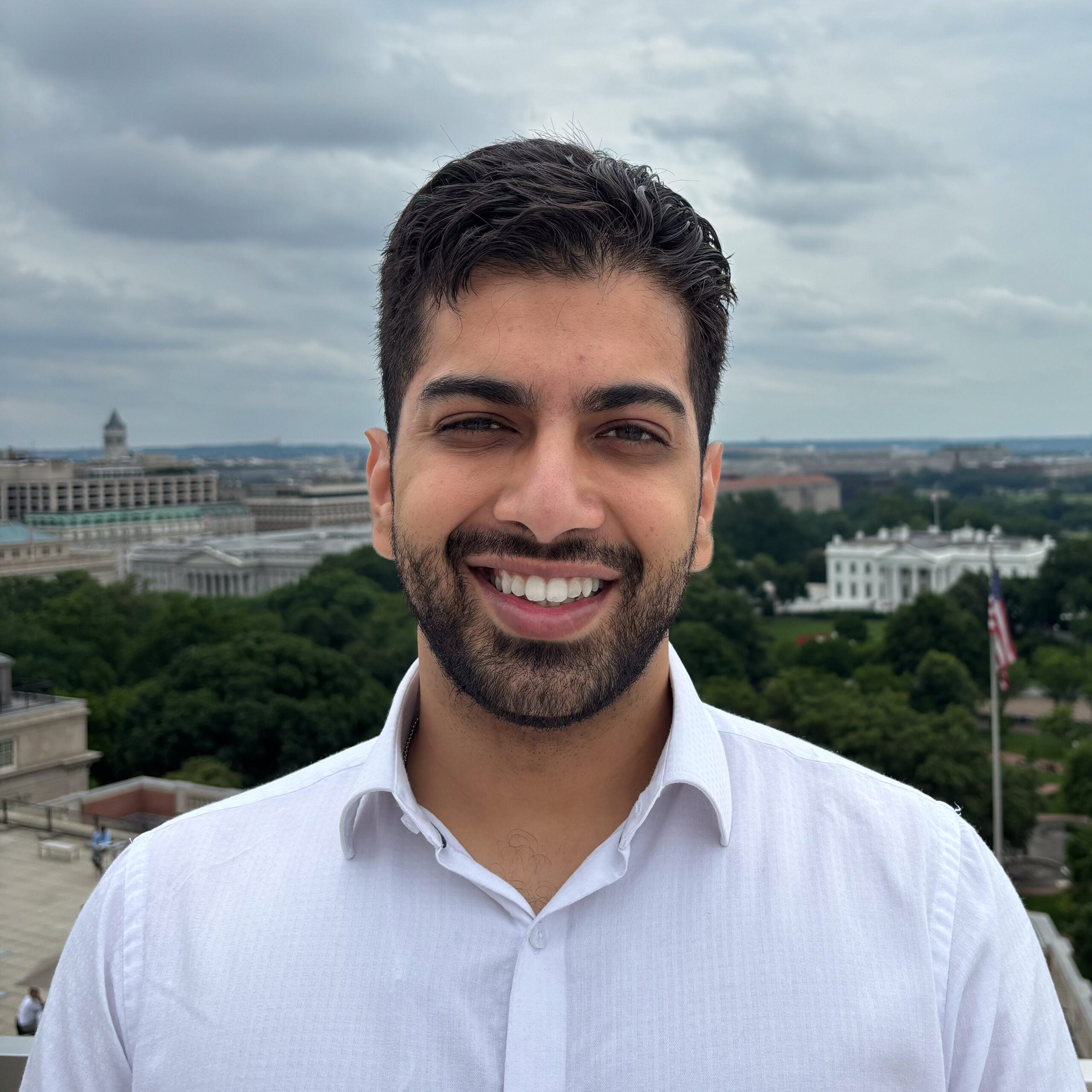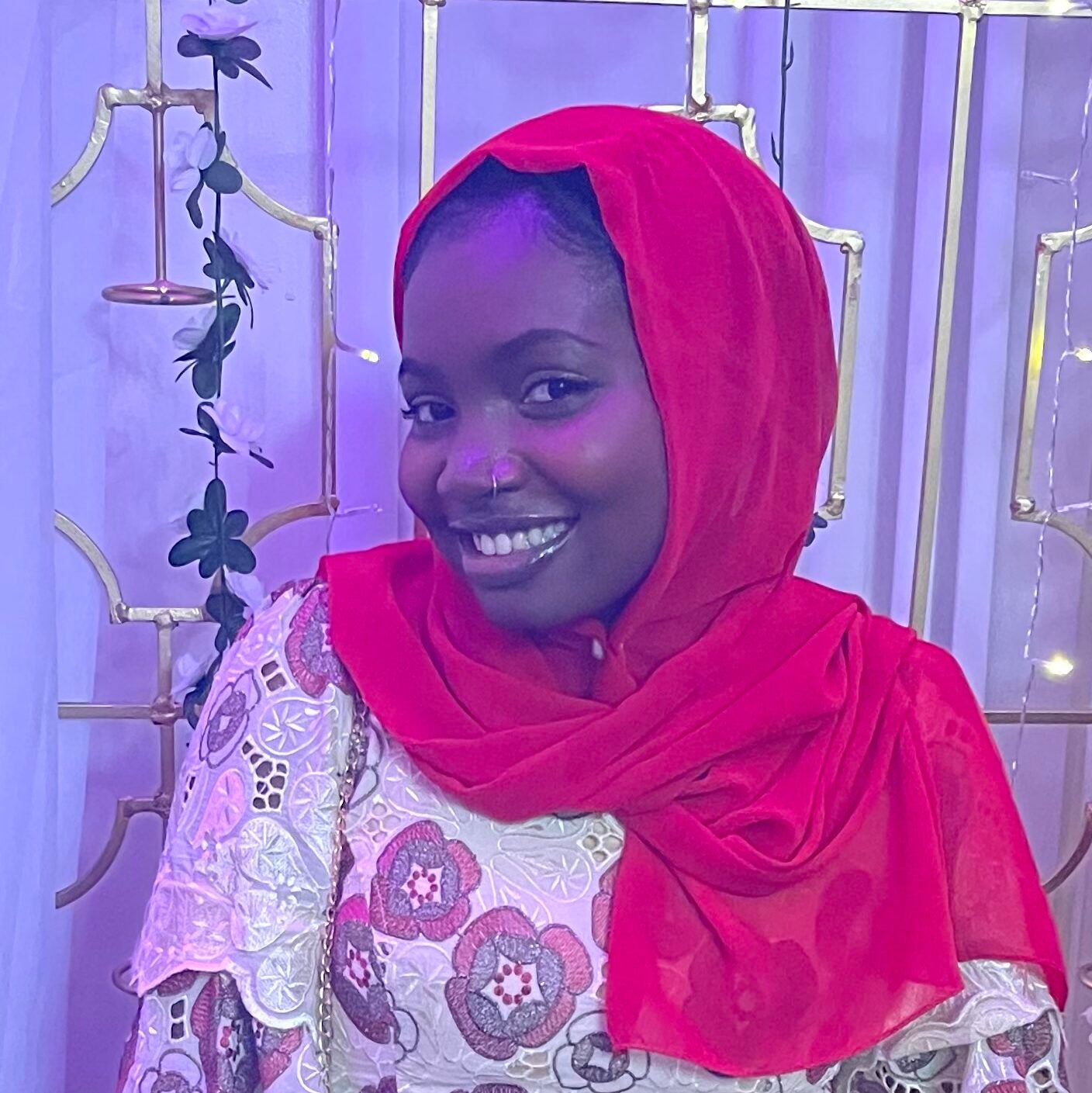By Hussain Awan ’25
Hussain Awan ‘25 is a second-year law student (2L) at Harvard Law School and a student attorney with the Harvard Immigration and Refugee Clinic (HIRC). He works on pro bono matters for individuals seeking asylum and refuge in the United States. This set of interviews, with Awan as the interviewer, seeks to shed light on the stories of former HIRC clients who have transformed their experiences into opportunities for aiding others in similar situations. Some answers have been shortened for brevity.



HUSSAIN AWAN ’25: Thank you, Bella and Bilguissa, for your willingness to speak with us and for all of the wonderful work you continue to do! Your stories are immensely important and inspiring, not just to those of us at HIRC but also to the wider community that we serve.
AWAN: What were your first impressions upon interacting with HIRC?
BELLA BALDE: My mom was a former client, so after we got to the US, we would go see the lawyers with my mom. I remember vividly the day my mom finally got her green card –– how excited she was. She was crying tears of joy and my brothers and I asked her why she was crying. She said you guys don’t understand how hard it is to get this card. To my siblings and I, it was just a card. I didn’t know the struggle and didn’t understand how hard it was to get it.
AWAN: Looking back, what advice do you have for people in your community who are in the process of seeking asylum or are attempting to rebuild their lives post-asylum in the Boston area?
BILGUISSA BARRY: Looking back on my experience, my advice to individuals in my community who are in the process of seeking asylum is to be patient and seek support from organizations that are truly for them and will advocate for them. Additionally, I encourage them to stay hopeful despite the difficulties they may face along the way. This journey can be hard and they have been through so much, but maintaining hope is essential to staying resilient and not giving up. This is the only way to not be discouraged.
BALDE: I also advise them to try and learn about their rights and responsibilities in this country, because if you don’t know your rights, you live in fear and some people take advantage of you.
AWAN: It’s so inspiring to hear about your journey and how it has brought you here. What has growing up in Boston been like? What do you guys do now?
BALDE: Growing up in Boston was eventful, but I’m forever grateful and wouldn’t change a thing. We were always surrounded by the people in our community, but we also had to learn how to exist in other communities, like school for example. I graduated college with a bachelor’s degree in criminal justice and now I work for Vinfen as an administration assistant and plan on going to get my master’s degree soon.
BARRY: Growing up in Boston has been a significant part of my journey, and I often consider my life in two parts: growing up in Guinea and growing up in Boston. At ten years old, I vividly remember my life in Guinea, but I also recognize that I did a lot of growing up in Boston as well. The majority of my schooling happened here, and I learned invaluable lessons and gained diverse experiences in this vibrant city. I graduated from Boston College, where I cultivated my passion for law and advocacy work. Now, I am fortunate to work at Northeastern University with their Community Engaged Teaching and Research office, where I continue to pursue my interests in community engaged work. Working alongside organizations like the Harvard Law Clinic has been incredibly inspiring, as I witness the dedication and impact of the students firsthand.
AWAN: With your hard work behind the scenes, HIRC was able to put on a big weekend clinic this semester at a Guinean community center for newcomers starting their asylum applications. Could you speak a bit about how you helped organize it?
BALDE: When my friend Bilguissa and I decided to reach out to the school, I told her that I would reach out to Harvard because of my mom’s connection (as a former HIRC client), but I honestly didn’t think that Sabi was going to remember me because it had been so long. But she did remember me! It was so funny because she texted my mom and asked her about me and then my mom called me because I hadn’t yet told her what Bilguissa and I were planning on organizing.
We sent out emails to different law clinics, and Harvard was the only clinic that was interested in learning more about our event. We scheduled a Zoom meeting with Sabi, Eleni [Bakst, HIRC Clinical Instructor], and Cindy [Zapata, HIRC Clinical Instructor]. We spoke to them about our goals: to help the newly arrived immigrants in our community and to apply for their asylums pro bono. We were able to help 15 people apply for asylum, and we completed change of venue forms for the clients that needed them at our community center.
I was very shocked at how many students actually volunteered. They came and gave it their all to help our community!
The weekend clinic was a success. The students helped a lot of our community members apply for asylum and decreased a lot of stress for them. It gave them hope and makes them feel like they are moving in the right direction and not staying stagnant. Now, they are counting down the days until they can finally apply for a work permit.
BARRY: Through ongoing communication and coordination, we worked together to plan and execute the clinic, ensuring that it met the specific needs of the individuals we aimed to support. Our efforts involved logistical planning, reaching out and communicating with asylum seekers, gathering the appropriate information they needed, and providing necessary resources to facilitate a smooth and effective clinic experience.
In addition, we enlisted the support of volunteers from the Guinean community who spoke French and Fulani to serve as translators during the clinic. These volunteers underwent training with the clinic to ensure they were equipped to provide accurate and culturally sensitive translation services. Their invaluable contribution helped bridge language barriers and enhance communication between asylum seekers and the clinic staff.
AWAN: Thank you both for your willingness to share your insights and experiences! Your stories not only highlight your extraordinary resilience and community spirit, but also serve as powerful illustrations of what HIRC strives to be. Through your personal stories and dedicated community activism, you demonstrate the profound impact of compassionate legal support and collective effort. Thank you again for all you do and we’re grateful that HIRC has been a part of this journey!
Filed in: Client Stories
Tags: Class of 2025, Harvard Immigration and Refugee Clinical Program
Contact Office of Clinical and Pro Bono Programs
Website:
hls.harvard.edu/clinics
Email:
clinical@law.harvard.edu